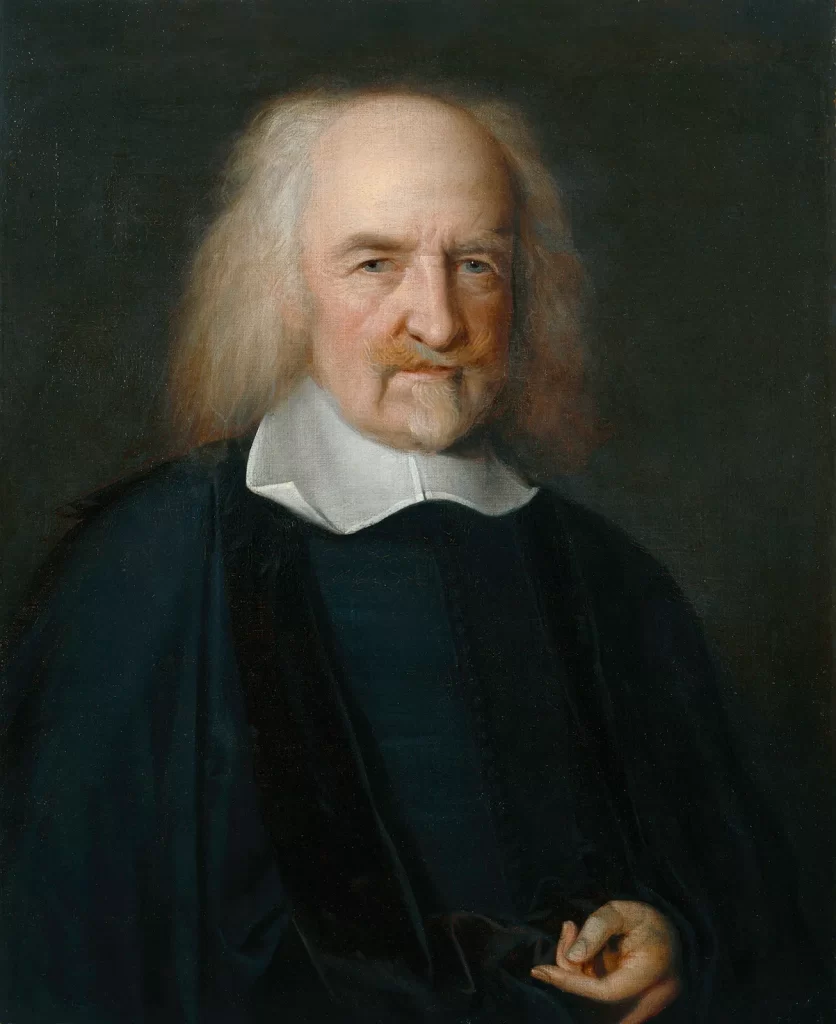
Thomas was an English philosopher born at the end of the Tudor era and lived through the English Civil War, and the Stuart Restoration, and, had he lived until 100, would have seen the beginning of the Glorious Revolution that deposed the Stuart dynasty. He lived in an era of intense and vicious religious and civil wars in both England and continental Europe. In response to the evils and suffering created by religious and civil wars, Hobbes created an innovative political philosophy centered around fear and created an all-powerful supreme authority that eliminated civil wars by the force of fear. While his political philosophy was an outlier in the canon of modern social-political philosophy because he ignored the impact of social structures and religion on politics and placed the political sphere in the unquestionable center, his theory and innovative concepts became the foundation of modern social-political philosophy. His concept of the state of nature and civil government by social contract was crucial to liberal philosophers from John Locke, who was a close contemporary of Thomas Hobbes, to John Rawls, who formulated his philosophy 300 years later. According to Hegel, world history sometimes had epochs where the whole world was remade and where a great philosopher could change the world by creating an epic philosophy that defined the coming era. And while many philosophers had interesting ideas, few had as much impact as Hobbes, whose historical impact could arguably only be matched by that of Karl Marx.